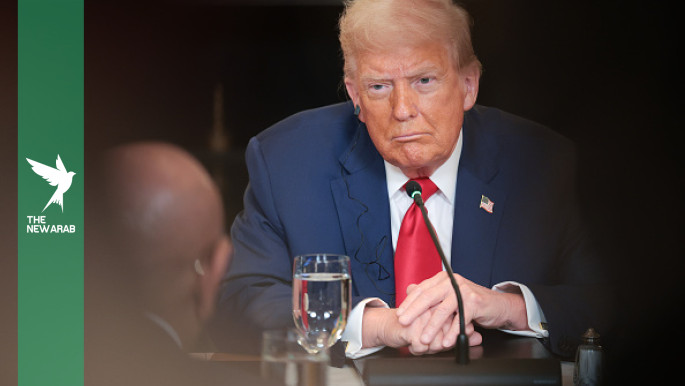A lawsuit against the Trump administration over its suspension of refugee visas is moving forward. [Getty]
A class action lawsuit against US President Donald Trump over his suspension of refugee resettlement is now being given the green light to move forward.
This week, a federal court in Seattle ruled that the legal challenge to the administration’s decision could move forward as a class-action lawsuit on behalf of refugees while denying the government’s motion to dismiss the case.
“Our lawsuit is seeking relief for everyone at all stages of the refugee process,” Megan Hauptman, a litigation fellow with IRAP, told The New Arab.
“We’re trying to restore the status quo, so that people who are in the refugee pipeline can continue to seek safety,” she said.
In February, the International Refugee Assistance Project filed Pacito v. Trump on behalf of Church World Service, HIAS, and Lutheran Community Services Northwest, in addition to nine people impacted by the suspension, who represent three subclasses of impacted refugees in the case.
The subclasses are: refugees waiting for admission to the US; those who quality for special immigrant visas, typically in their work as interpreters and other support for the US military in Iraq and Afghanistan; and refugees petitioning for family to relocate to the US.
Many refugees have been in limbo for years. Some have sold their belongings, and others continue to wait for their cases to be processed while living in conflict zones or third countries.
After a Supreme Court ruling in June limited the ability of federal courts to issue nationwide injunctions, class certification allowed for cases to continue.
“The most important thing is the people at the heart of this,” said Hauptman. “These are real people who invested a lot and who were on the verge of being resettled and then abandoned. They’ve been in limbo for years, often in dangerous situations. Hopefully they can move forward to safety.”
Separately, on Thursday, a federal judge in San Francisco blocked the Trump administration‘s ending of Temporary Protected Status for 60,000 people from Central America and Asia. This prevents them from being deported and allows them to work.
